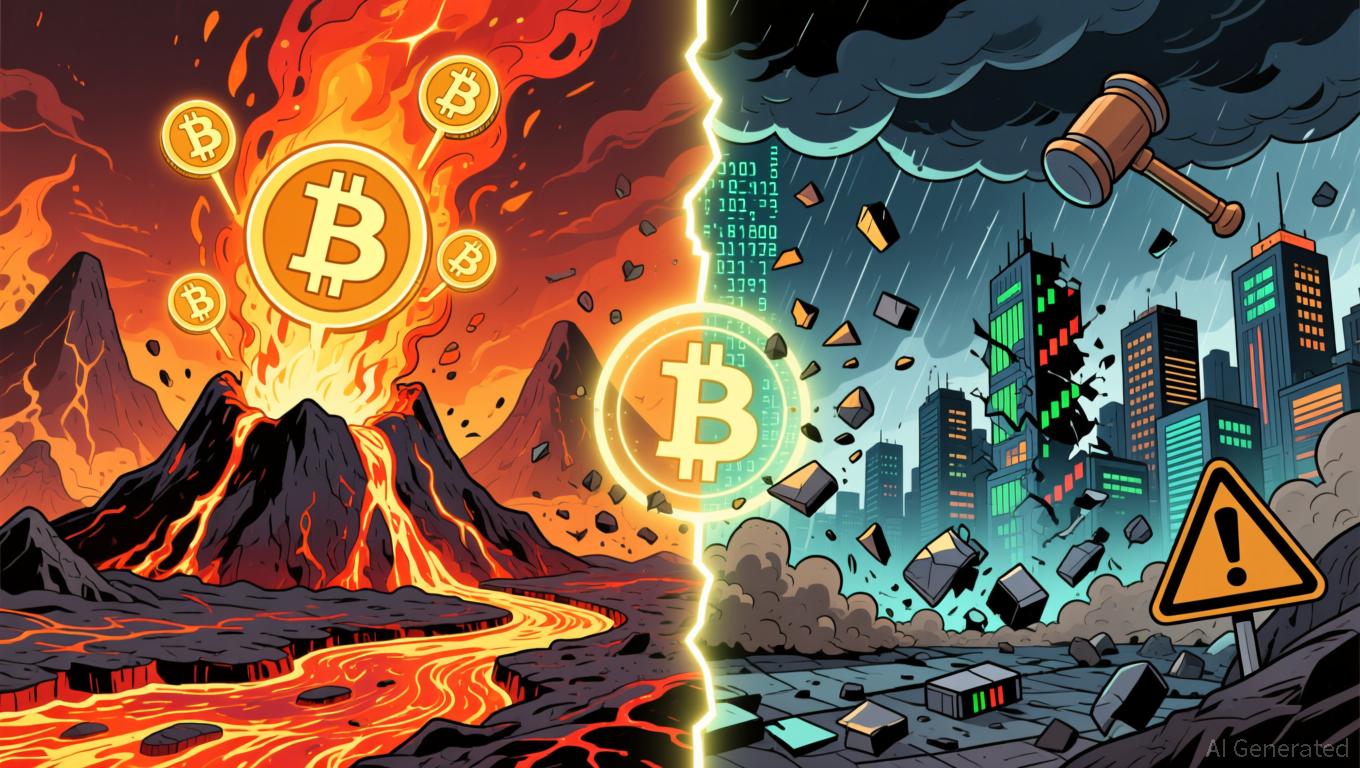Navigating Cryptocurrency Frauds: The COAI Token Fiasco and the Importance of Investor Research
- COAI token's 88% collapse in 2025 exposed DeFi vulnerabilities, causing $116.8M investor losses through algorithmic stablecoin flaws and opaque governance. - Centralized token distribution (87.9% in ten wallets) and regulatory ambiguities like the U.S. CLARITY Act enabled coordinated manipulation and liquidity crises. - Global authorities imposed sanctions and froze assets, but jurisdictional gaps persist as Southeast Asia remains a crypto scam hub with $10B annual frauds. - Experts urge smart contract a
Exploiting DeFi's Weaknesses
The COAI token fraud capitalized on inherent flaws within DeFi systems. One major warning sign was
Algorithmic stablecoins, which are fundamental to many DeFi initiatives, were also a contributing factor. These digital assets depend on intricate systems to keep their value stable, but

Regulatory Responses and Transnational Challenges
Authorities have started to take action, but efforts remain inconsistent. The U.S. and U.K. have sanctioned individuals and organizations involved in the scheme, while
Southeast Asia has become a major center for crypto-related scams,
Investor Due Diligence: A Path Forward
The COAI incident is a powerful lesson for investors about the necessity of active risk assessment.
Clear regulations are just as vital.
Conclusion
The COAI token scandal stands as a warning for the DeFi sector. Although blockchain technology holds great promise, its dangers are heightened by the lack of effective protections. Investors must practice thorough due diligence, and regulators must address legal loopholes and uphold accountability. The future stability of DeFi will depend on how well innovation is balanced with robust safeguards as the industry develops.
Disclaimer: The content of this article solely reflects the author's opinion and does not represent the platform in any capacity. This article is not intended to serve as a reference for making investment decisions.
You may also like
XRP News Update: XRP ETFs See Inflows Soar While Prices Drop: The $628 Million Inflow Mystery
- XRP ETF inflows hit $164M daily as Bitwise, Grayscale, and Franklin Templeton drive institutional adoption, surpassing $628M total assets. - Ripple's 2025 SEC settlement and RLUSD stablecoin boosted confidence, but XRP's price fell below $2 amid whale sales of 200M tokens. - CME's XRP futures and NYSE Arca's ETF approvals signal growing institutional infrastructure, though 41.5% of XRP supply remains in loss positions. - XRP outperformed Bitcoin (+89% vs 3.6%) due to DeFi upgrades and cross-border utilit
India’s legal framework poses significant obstacles to the enforcement of U.S. court judgments.
- U.S. courts face enforcement challenges in India as Byju Raveendran's $1.07B default judgment clashes with India's strict foreign judgment recognition rules under Section 13. - TCS must appeal a $194M trade secrets ruling from the U.S. Fifth Circuit, highlighting cross-border IP disputes' complexity in the global IT sector . - Binance refunds Alpha Points after a technical error in a token airdrop, emphasizing operational risks in blockchain-based reward systems. - Amber International reports 69.8% YoY a

Bitcoin News Update: Bitcoin's Divergence from MAG7 Highlights a Shift Toward Scarcity-Focused Identity
- Bitcoin’s recent price drop and volatility warnings highlight market fragility amid diverging MAG7 correlations. - A historic $19B liquidation on October 10 marked Bitcoin’s decoupling from MAG7 tech stocks, reclassifying it as a scarcity-based hedge. - Low institutional adoption and 5% odds for MAG7 firms to hold Bitcoin in 2025 underscore limited macro support. - Trump’s growth forecasts lack Bitcoin tailwinds; CleanSpark’s AI pivot highlights crypto diversification. - Bitcoin’s future hinges on macroe

Bitcoin News Today: JPMorgan's Bold Bitcoin Gamble: Potential for 1.5x Profit or 40% Decline by 2028
- JPMorgan Chase launched a Bitcoin-linked structured note tied to BlackRock's IBIT ETF, offering 16% minimum returns by 2026 or 1.5x uncapped gains by 2028. - The product reflects institutional acceptance of Bitcoin as a tradable macro asset, aligning with ETF inflows despite recent market declines. - Investors face significant risks: potential 40% losses if Bitcoin collapses, though partial downside protection is offered for declines under 30% by 2028. - JPMorgan's approach mirrors Morgan Stanley's $104M
